Yo Shiomi
Birth : 1895-07-07, Tokyo, Japan
Death : 1964-07-01
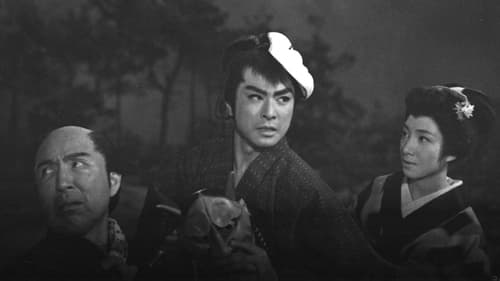
A kindhearted wandering gambler named Hajiro gets involved in a crisis of a village as he passes through and decides to lend a sword in hopes to rescue them.

First "Maboroshi tantei" film, based on the manga by Jiro Kuwata.
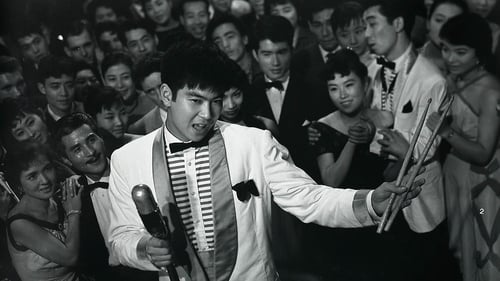
Shoichi Kokubun (Yujiro Ishihara) is a roughneck street musician, who has a brother that is determined to propel him into stardom. In attempt to catch the attention of a popular jazz band, his brother appeals to their manager who has the power to make him a star. In a graphic portrayal of love, betrayal and success, Shoichi brews up a storm with a 'rat-a-tat-tat' on the drums.

Yoshitaka Asai
A woman falls in love with her sister's fiancé.

Emi Ikushima, a star actress in the Roses, is half-hearted, but she wasn't disappointed by the news of her father Enmy's sudden death, and she performed enthusiastically on the stage that night, attracting a crowded audience.

Endo

Japanese crime film.

Jikai
Mokichi is the widowed father of three daughters, with whom he lives on the premises of a temple since the war. In the film all three daughters become involved in some sort of complicated relationships. The sisters and their attached Men are deliberately designed as allegorical figures on the changing social conditions. A wonderfully funny, sometimes droll comedy between Nara and Tokyo, Adagio and Allegro, Yesterday and Today - in search of a morning.
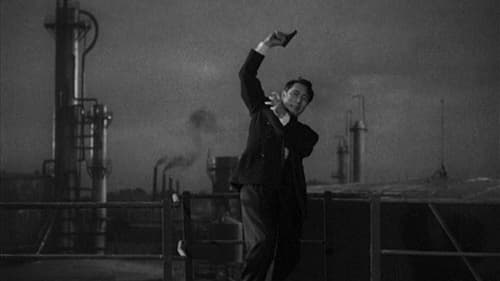
When an invisible man is run down by a car it’s up to an eager young reporter and a strange clown to bring a dangerous gang to justice.
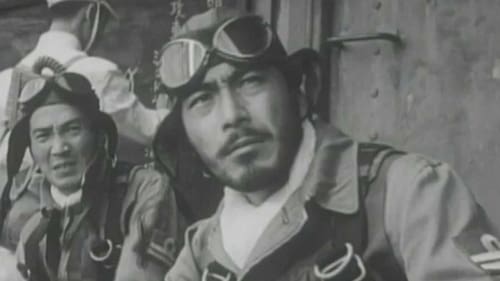
Admiral Isoroku Yamamoto, a brilliant tactician, is a loyal subject of the emperor, despite his grave misgivings about leading Japan's navy into war with the United States. He opposes the attack on Pearl Harbor, but, overruled, he leads his forces to the best of his ability.

Once an average and seemingly ordinary Tokyo girl, she suddenly finds herself as a TV star owing to her discovery by a casting company, which noticed photographs that her cousin had sent. When another actress falls ill she is given the role instead. Her first film is a success propelling the young actress to popularity, her own fans, money and a house. While everything looks dandy from the outside not all is well within the family however.

Atsuko is an office secretary who is also her family's primary source of income and caretaker in postwar Japan.

Connie Sonobe's father
One Sunday morning, Toshio Esaki, a young dentist, wakes up in his clinic. It seems that he was drunk and spent the night in the clinic instead of going home. When he goes into the laboratory to get a drink of water, he finds a woman wearing a green striped Western-style dress lying there.

Ritarô Tokuyama

A film dealing with the comings and goings of individuals in the immediate postwar period.

Jidai-geki by Ryo Hagiwara

Genzo Saeki
A 1943 film.

War-time jidaigeki by Eisuke Takizawa. Didn't find anything about it online, but Takizawa was a well-regarded director in his time. Akira Kurosawa worked as A.D. on several of his films.

A 1942 film.

Set in Qingdao, China, a Japanese company locates an office there and begins work and cooperation with a local Chinese company for business. Many Japanese engineers also move to China, with their families, for the company in order to construct a canal. There are young Chinese resisting the Japanese in this area.

Tsunokuniya Chiemon

The title might sound shocking, but the red hands mean, the hands which drag fishnets. Ohama, 15 or 16 years old girl lost her family and lived alone in a fishermen's village. She is a strong-minded girl and very popular among young children.
I guess that this story is one of the origins of girl's manga in the 1950s in which I belonged to the first generation of Japanese story manga.

Jurobei, a kaisen tonya (wholesaler in port) in Awa, was wronged and killed on the day of the Dance Festival by the evil merchant & the chamberlin. His brother (Kazuo Hasegawa) vowed vengeance on the day of his brother's death. So every year the villains are worried during the Awa Dance Festival (which is part of the Obon festival), but nothing has ever happened, until seven years later...

Priest Tenkai
A sentimental tale of the filial love between shogun Iemitsu (matinee idol Hasegawa) and his loyal old retainer Hikoza (comedian Roppa, playing somewhat against type).

Jidaigeki from 1940

Okumura Ioko story directed by Shiro Toyoda
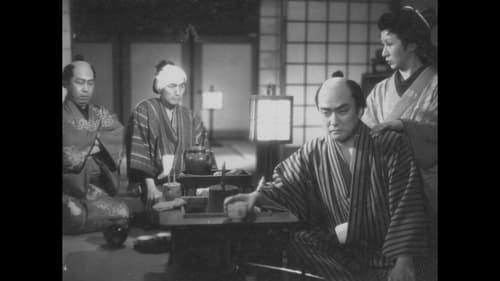
A jidaigeki film on Banzuiin Chōbei produced in 1940 and directed by Yasuki Chiba.

Twenty-year-old Yoshiko (Setsuko Hara) and her younger sister Asako (Yōko Yaguchi) struggle to accept changes in their home during the preparations of their widowed father's wedding to his chosen bride, Maki Tsuneko (Sadako Sawamura), who's anxious about her conduct as the bride.

Part two of two.

Part one of two.

Wartime propaganda filmed by the Japanese in occupied China, Shirley Yamaguchi portrays an orphan rescued from the streets by a kindly Japanese merchant marine officer. Part spy thriller and part Shanghai travelogue, it was part of a popular series known as "Chinese Continental Friendship" made by the occupying Japanese in China.

Japanese adaptation of LES MISERABLES. The last film of director Itami took inspiration from Les Miserables. Transpiring during the Southwestern War of 1877 in Japan, which was the last civil war in the country, a criminal escapes prison only to be found by a monk. The criminal decides to turn a new leaf based on their conversation and goes on to become a town's mayor. He hears news of a mistaken arrest and identity. The revelation of truth is the start of a series of miseries.
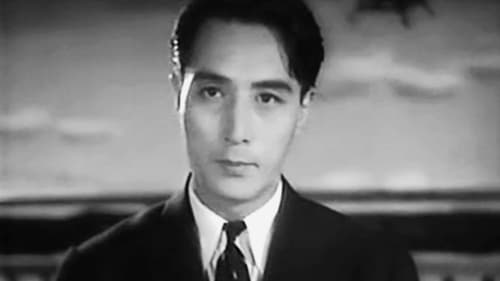
Yurie's father
Part 1 of a 2-part romance based on a story by noted author Kikuchi Kan. The central character here is Toyomi (played by Takako IRIE, star of Mizoguchi’s "Water Magician), a rich young woman in love with Shintaro (Minoru TAKADA), a rich young man. Unfortunately, Shintaro’s father is in the process of arranging a marriage for him with Yurie (Chieko TAKEHISA), the scion of an even wealthier family. In order to avoid this, the two young lovers flee to Tokyo to live together. When Shintaro comes back to proclaim his intent to marry Toyomi, his father browbeats him into attending the long-arranged marriage meeting with Yurie. While Shintaro is back home, Toyomi goes on a vacation trip with her closest chum, Michiko (Yumeko AIZOME). At a class reunion, Toyomi is to distressed (at not having heard from Shintaro for so long), she doesn’t go out on the town with her classmates. Michiko, however, runs into Shintaro and Yurie (also out on the town), and pulling him aside, demands an explanation.

Japanese film.

Gorô's Father
The study of a one-year marriage that begins to crumble. A married man is torn between the love of his wife, and the attraction to a cousin of his wife.

Keisaku
A story of two sisters, the older being more traditional, the younger a "moga" ("modern girl"). Their widowed father runs the family sake shop, but is running into financial trouble, causing him to tamper with his stock; Meanwhile, his long-time mistress yearns for something more serious. Amidst this, the older sister is introduced to a well-off suitor: A university boy, much more intrigued by the less traditional little sister. A doddering grandfather, an officious uncle and busybody neighbors also don't make the lives of the hardworking members of the family any easier.

Toho's production of the classic Japanese fairytale.

An early Japanese sound film, notable for being the only Japanese film ever to use the Western Electric Sound System. Contrary to most Western sources that give sole directing credit to Eizo Tanaka, it was actually co-directed by six different directors, Tanaka, Kazue Kimura, Kazuo Takimura, Ryoji Mikami and Hidekuni Ouchi.




















